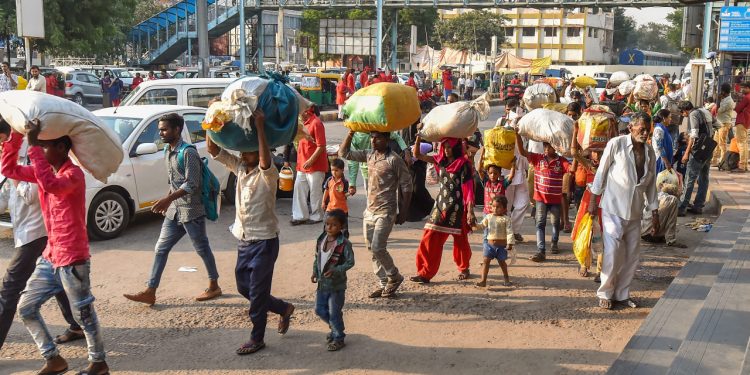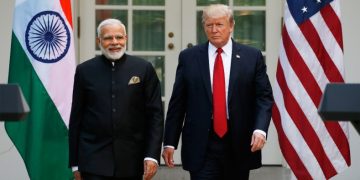In the period leading up to the general election, it is not unusual anymore for political parties — be they in the opposition or ruling camp — to manufacture dissent and build narratives of distrust against not only one another but also within society. The upcoming Lok Sabha election 2019 is no different. In the process, how many lives might be lost and how much blood will be spilt on the streets, remains to be seen. In Gujarat, Prime Minister Narendra Modi’s home state, migrants are reportedly being targeted and at least 50,000 of them have left the state fearing violence in the wake of the rape of a baby just 14 months old, allegedly by a migrant labourer. This rape incident seems to be superficial and an on-the-spur reaction to a long hidden dislike for Hindi-speaking migrants. The migrants had been instrumental in terrorising the Gujaratis for many decades. This can be said authoritatively since there are thousands of Oriya speaking labourers in the state of Gujarat who have not been attacked by the locals.
Although some claim the exodus is not the result of targeted violence but merely festival season rush, it would only be shutting one’s eyes to the obvious.
The fact that migrant workers are leaving Gujarat out of fear is evident from the appeals state home minister Pradeepsinh Jadeja is making to get the workers to return to the state. The rape of the infant was undoubtedly cruel and sad. But targeting all migrant Hindi speaking workers for the perversion of one person is obviously not the real issue. The people affected by such violence are those who are extremely poor and deserve everyone’s sympathies. They have left Uttar Pradesh, Bihar, Madhya Pradesh and such other states for their livelihood but are probably not willing to accept local norms in the stride. Language, like water, is becoming a serious issue that even daily wage earners have to contend with. It is, of course, sad when people of such weak economic conditions have to suffer for reasons that they are not in a position to comprehend. However, local social needs have always weighed heavy on migrants throughout history across the world. Even present day Europe is grappling with hugely disparate religious and linguistic minorities who have migrated to that continent for very many reasons.
Violence has been plaguing the lives of migrants for centuries. It is a fact that those who are softer in nature and make efforts at getting assimilated with local conditions fare much better as migrants. On the contrary, hard liners who stick to their native customs, beliefs and especially language stand out as sore thumbs and invite trouble for themselves.
The Gujrat backlash is a warning for those who think Hindi is the sole language for the whole of India. The establishments that promote this particular sense of superiority resulting in a weird ‘unity’ for the country may be causing greater harm than good to the nation.
Decisions such as the National Register for Citizens or that of the Sabarimala temple also bode ill for the future. People have been deliberately poked and disturbed so that it becomes easier to polarize opinions. The same is happening in multiple ways across segments. It would be no surprise if the review petition filed against the Supreme Court ruling on entry of women to Sabarimala is quashed. What is being forgotten here is that by polarizing opinion, the powers that be may be able to gain short-term benefits but in the long term the repercussions would be disastrous. The country has in the past also seen actions aimed at polarising and dividing people under the garb of unity. At present there are clear indicators that migration is happening at an alarming rate along the East-South coast. Joblessness is leading to stagnation of growth and is creating an increasingly anxious population that is unhappy in many ways. With increasing disparity among the rich and the poor and the middle class getting poorer by the day, the situation is like sitting on a powder keg. Throw in economic hardship created by some global and mostly domestic economic policy failures, India may have to see such situations increase in the future.






































